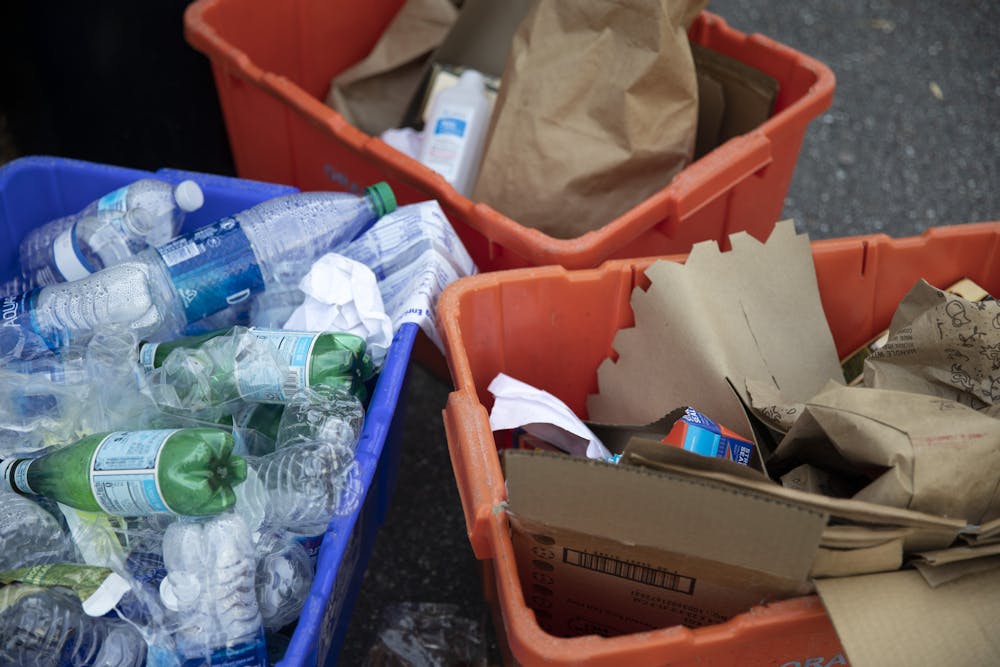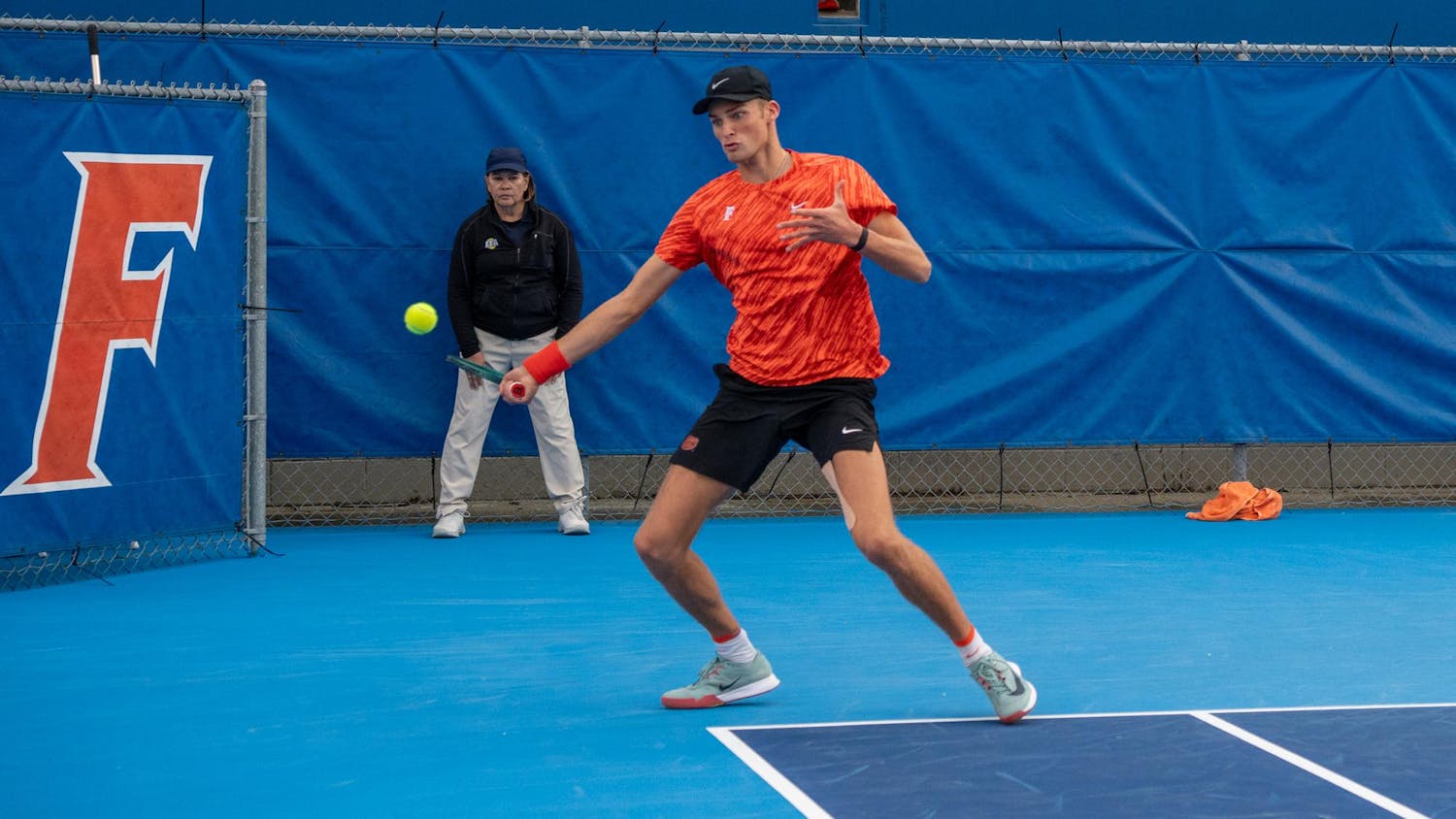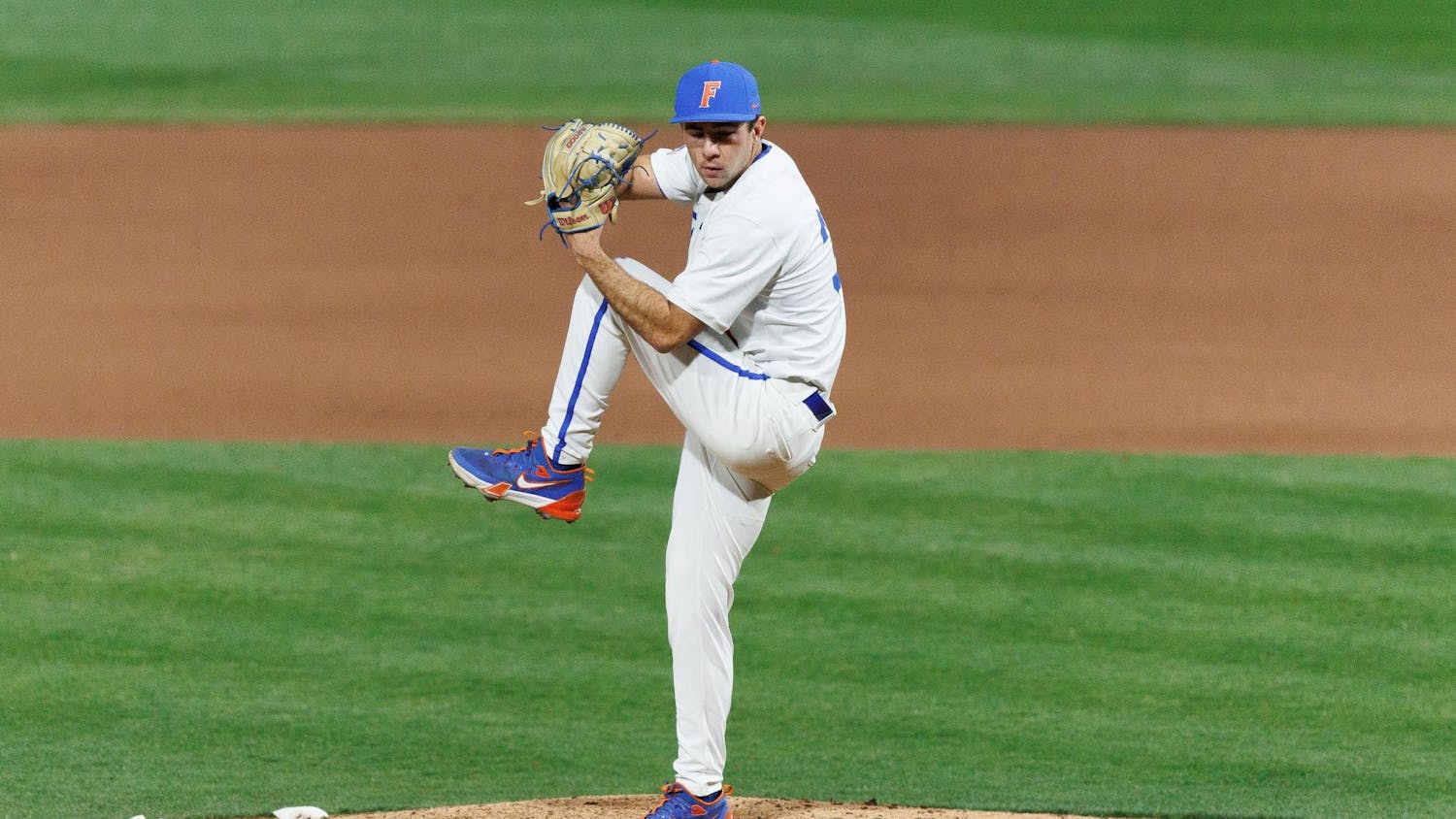With a newborn baby in her house, Nina Bhattacharyya finds it increasingly important to save money and cut down on waste.
However, with the Gainesville City Commission’s May 6 decision to remove the Pay-As-You-Throw program, the Zero Waste Gainesville founder is concerned about her ability to do so.
Pay-As-You-Throw began in Gainesville in 1994, and the purpose of the program was to create an incentive for residents to produce less waste by making it more expensive to own a larger trash bin, Bhattacharyya said. Homeowners can choose from four trash bins, each with a different size and price. The smallest bin holds 20 gallons of waste and costs $184.73 while the largest bin, which holds 96 gallons of waste, costs $322.68.
Under the program, if a homeowner produced more waste than their trash cart held, the city automatically upgraded that resident to a larger sized bin and charged them for the upsize.
“Pay-As-You-Throw gives households the chance to save money while also opting for a smaller trash cart that promotes less waste,” she said.
Despite these benefits, equity issues caused five of seven city commissioners to vote for the program’s removal.
City Commissioner David Arreola was among the five who voted to eliminate Pay-As-You-Throw.
“The zip codes that were predominantly Black were paying much higher prices because they were all using the bigger bins,” he said.
During the meeting, the Gainesville Office of Equity and Inclusion provided an analysis showing how low-income areas were throwing away more trash and therefore paying larger waste fees than affluent neighborhoods that had higher recycling uses and generated less waste. This imbalance in cost was deemed a racial inequity because the lower-income neighborhoods are predominantly black, while the higher-income neighborhoods are predominantly white.
However, City Commissioner Adrian Hayes-Santos said he believes waste inequity will not come to an end along with the program.
“This action will actually have a different effect than what the commission voted to do and will actually make things more inequitable,” he said. “People who use less pay less and people with more trash pay more.”
Hayes-Santos was one of two commissioners who voted to save it.
“Pay-As-You-Throw is the most effective way that cities can create an equitable system for trash,” he said. “The EPA has said this is one of the most effective things that a city can do to help reduce the amount of trash going to landfills.”
Amanda Waddle, the Zero Waste Gainesville co-chair, said she was extremely upset by the commission’s decision.
Waddle said the group, which was founded in 2017, has two missions: working with city and county officials to advocate for a zero-waste community and educating individuals and families on how to work toward day-to-day zero-waste. The group’s website provides an email message to send to city commissioners, urging them to revisit the recent vote.
“The removal of this program was too quick of a decision,” Waddle said. “Instead, we need to take a step back and figure out how we can keep Pay-As-You-Throw and work on improving it so that it is equitable across the community.”
Alachua County residents were also disappointed in the lack of community engagement involved in the decision to eliminate the program.
Among the concerned community members is 68-year-old Alachua County resident Janice Garry, who believes the Pay-As-You-Throw program should be fixed rather than thrown out altogether.
“The decision is very short-sighted. It is single-topic restricted. It is unnecessary,” she said. “This hasn’t changed my view of the commissioners because it hasn’t been the first time that I have disagreed with them, but I am really terribly disappointed in their decision.”
Arreola said the commission plans to determine if any votes will be reconsidered for the removal of Pay-As-You-Throw at a meeting on May 20.
Contact Maya Erwin merwin@alligator.org. Follow her on Twitter @mayaerwin3.
Maya is a third-year journalism major at the University of Florida covering university general assignment news for The Alligator. In her free time, Maya loves traveling, spending time with friends and listening to music.






